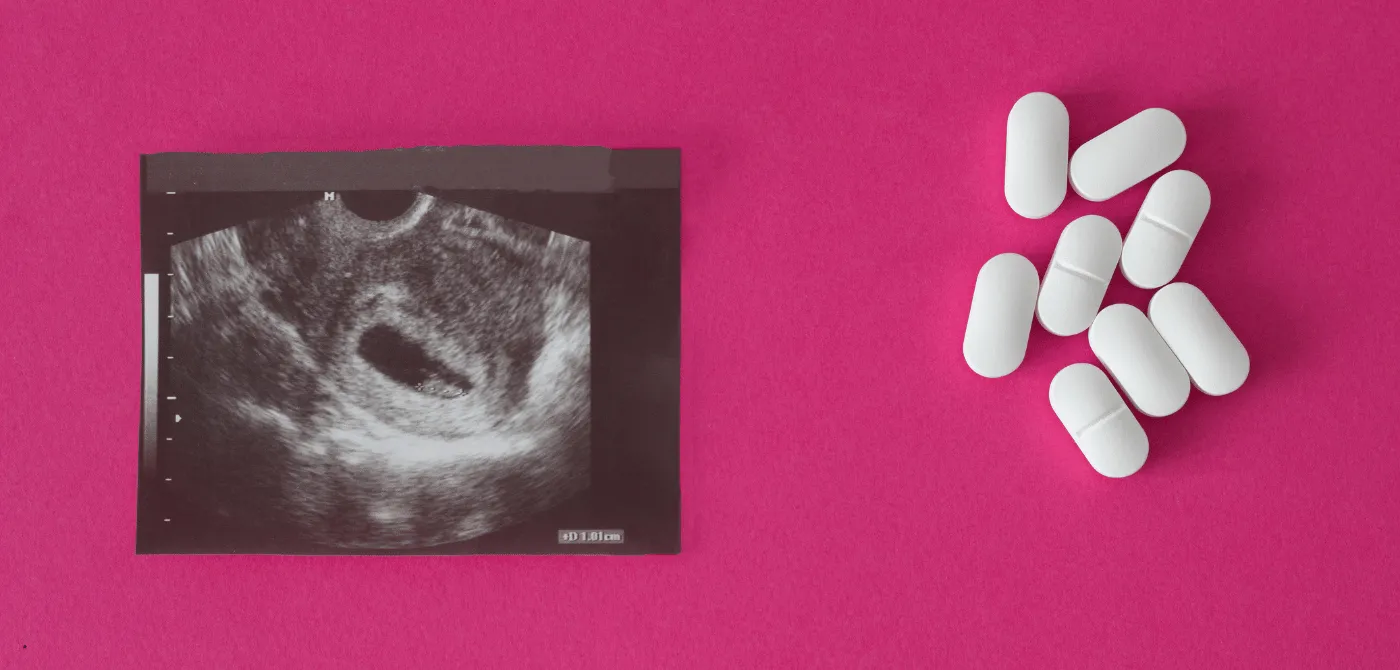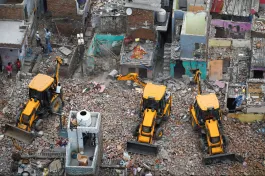Significant strides have been made by India in reducing maternal mortality, a well-recognised indicator of women’s health. However, the existing literature indicates the need to look beyond maternal mortality to include other significant indicators of sexual and reproductive health and rights (SRHR) to ensure health and well-being of women. Conversely, multiple rounds of National Family Health Survey (NFHS) data indicate the inadequacy of sexual and reproductive health (SRH) services in India.
Despite Kerala’s high human and gender development indicators, the state is not an exception to the national trend. Kerala grapples with the challenges of poor utilisation of modern reversible contraceptives and high proportion of female sterilisation. Women face severe constraints to negotiate sexual and reproductive choices like contraception within and outside families. Studies have indicated that poor knowledge, distrust and misconceptions about modern methods of reversible contraception, lack of autonomy to participate in contraceptive decision making, and inadequate healthcare services including induced abortion precluded the women from informed reproductive choices.
Kerala grapples with the challenges of poor utilisation of modern reversible contraceptives and high proportion of female sterilisation.
As in the rest of India, female sterilisation, which is irreversible, is the commonest contraception method used in Kerala. The higher utilisation of this method over other reversible modern contraceptive methods such as condoms, oral contraceptive pills, Intra Uterine Devices, and male sterilisation, reflects the burden of birth control placed on women. A community-based cross-sectional study in the state found that approximately 91% of women preferred female sterilisation. This preference needs to be situated in the context where, as per NFHS-5, almost one sixth of Keralite men aged between 15-49 years reported that “contraception is a woman’s business and a man should not worry about it,” which is also reflected in the declining proportions of vasectomy and condom use.
While early sterilisation is touted as an empowering step for women allowing them to pursue higher education and careers in the post-childbirth phase, the limited evidence contradicts this. These circumstances add another layer of vulnerability to women from marginalised and underserved sections who are then forced to continue with an unwanted pregnancy, or seek abortion services from expensive private sector facilities. While agreeing with the argument that abortion cannot and should not be an alternative to contraception, it is critical to acknowledge that access to modern reversible methods of contraception remains a distant dream.
The Kerala paradox
As per NFHS - 5, around half of the induced abortions in the state of Kerala happened in the private sector health facilities which included hospitals run by nongovernmental organizations, trusts or clinics. 1The negligible literature available from Kerala prevents an analysis of the status of unsafe abortions in the state. Nonetheless, the NFHS-5 data from Kerala shows 1.5% of abortions reported to have occurred at home and about 7% were conducted by the woman herself. According to secondary analysis of Health Management Information Systems (HMIS) data, Kerala had the third lowest share of medical termination of pregnancies (MTP) performed in the public sector. Considering the highly private provisioned and financed health care service in the state, it can be reasonably speculated that a significant proportion of the abortions happening in Kerala would be in the private sector.
Poor access to sexual and reproductive health and rights, including abortion, is a demonstration of the Kerala paradox: where the state’s famed progressiveness is contradicted by its social realities for women, such as poor labour force participation, violence, dowry related crimes and mental health issues. Achievements in literacy and education have not played the transformative role expected out of them in challenging patriarchal notions shaping masculinity and femininity. As a consequence, these notions continue to shape the core of the social institutions like families, health systems and judiciary.
Patriarchy has evolved from an explicit oppressive structure to a benevolent one which in turn projects women as ‘empowered’, while continuing to subjugate and exploit their bodies. The disproportionate burden of birth control on women, inadequate use of modern reversible contraceptives by married couples, and the poor participation of women in contraceptive decision-making are reflections of this evolved expression of patriarchy. Healthcare providers and the judges, whose “moral objections” more often than not favour the unborn over the woman, are also the by-product of this evolved, benevolent patriarchy.
Systemic challenges
In 2021, the YP Foundation, a Delhi-based non-profit organization, conducted an exploratory qualitative study among the traditional fisherfolk community from coastal Kerala and tea plantation workers in Assam, to explore the barriers to accessing induced abortion services. The research focused on the perceptions of three categories of respondents: young people from the community, senior members who acted as gatekeepers, and systemic stakeholders from the local public healthcare facilities, NGOs and local self-governments. The findings of the study reflected the challenges encountered by a relatively marginalised community in Kerala in accessing abortion services, and hence may not be generalised for the entire state. However, the observations pertaining to the systemic challenges and the attitudes of the healthcare providers working in the public health sector are pertinent.
In general, men had the final say on the matters related to birth control, who were in turn largely dependent on their peers for the information.
Some of the barriers to abortion access were the societal norms and stigma towards women’s sexuality guided by benevolent patriarchy, the lack of accurate and comprehensive information regarding sexual and reproductive health, and inadequate healthcare services. Poor CAC (Comprehensive Abortion Care) preparedness of public healthcare facilities emerged as one of the most formidable barriers.
Younger members of the community, both married and unmarried, particularly women, expressed the need for accurate and comprehensive information about sexuality and contraception as they did not have access to the same. They reported that, in general, men had the final say on the matters related to birth control, who were in turn largely dependent on their peers for the information. In families of young people, women had more educational achievements than their spouses which led to disagreements and conflicts during decision-making. However, eventually, men had the final say regarding matters related to when to get pregnant, spacing, number of children, and so on. The young women attributed part of this situation to their own lack of information regarding contraceptives.
One of the major reasons for the poor knowledge even among educated members was attributed to the limitations in the sexuality education provided by schools or colleges. Cultural and religious notions around sexuality, especially the taboo around premarital sex, prevented any discussion within families. Respondents felt that the healthcare system did not make enough efforts to inform them about basic sexual and reproductive health. This could have translated to the prevalent misinformation and ignorance about birth control including modern reversible contraceptives even among married couples who were highly educated.
The healthcare system did not make enough efforts to inform them about basic sexual and reproductive health.
Accredited Social Health Activist (ASHA) workers serving the community too perceived abortion to be both illegal and unsafe. Based on the studies conducted in other parts of India, this could be due to the following two reasons. First and foremost, ASHA workers, although not salaried employees, train and volunteer under the patronage of the health system, inadvertently leading them to mirror the values and attitudes of the system. Secondly, the low priority assigned by the system on sexual and reproductive health and rights, including the dissemination of appropriate and accurate information in the communities, could have made the ASHAs complicit in the spread of misinformation through inadequate training.
The comprehensive primary healthcare policy by the government of Kerala commits to the facilitation of safe abortion services in primary healthcare facilities. However, the study observed overcrowding and consequent lack of privacy and confidentiality in the outpatient wing of the government healthcare facility serving the coastal community. The facility was not adequately equipped to facilitate abortion services. This was compounded by the stigmatising attitudes of the healthcare providers, who were duty-bound to facilitate abortion through counselling, referral, and follow-up. But they were found to delay referrals, inappropriately refer people to facilities where abortion service was not provided, fail to furnish complete information about alternative facilities to access the service, and emotionally manipulate the abortion seekers to dissuade them from accessing abortions.
ASHA workers […] train and volunteer under the patronage of the health system, inadvertently leading them to mirror the values and attitudes of the system.
Notably, such dissuasion was driven by a strong ‘moral obligation’ to prevent abortions. Providers largely perceived that the primary reasons for birth control were to ensure a ‘healthy future generation’ and to achieve population control. Considerations such as the pregnant woman’s wellbeing or her unwillingness to embrace motherhood did not appear to be valid or adequate reasons for abortion. According to them, the demand for abortion was invalid or ingenuine, unless the foetus was unhealthy or the mother’s life was endangered. The providers were also driven by their personal value systems and judgements over the existing legal framework of abortion.
These attitudes were reflective of the gender bias that continue to shape birth control and family planning initiatives in India. The origin of birth control/family planning as a social initiative can be traced back to the international feminist movement, which advocated for greater reproductive rights and autonomy for women. However, over time, the discourse shifted to population control with a strong focus on maternal and child health. The effect was equally palpable in developing economies like India which became the first country in the world to launch a family planning program. The rationale for this was the rhetoric of overpopulation being the major obstacle to development. The anxiety of the post-independent Indian state towards its inability in ‘controlling’ population through persuasion resulted in hostile and regressive population control measures – forced sterilisation – in the 1970s, which were met with severe backlash in the subsequent national election. Consequently, a revised emphasis on 'family' welfare, particularly on maternal and child health, became the way forward and continues till date as official policy.
Legal conundrum privileging the ‘able-bodied unborn’ over women
The law that governs abortions in India, the Medical Termination of Pregnancy Act 1971, is much like the family planning program that prioritizes population control over them. India has had relatively liberal legislation for abortion and the recent amendment to the law in 2021 increased the upper limit of abortion to 24 weeks from 20 for women including rape survivors, victims of incest, differently abled women, and minors. The act acknowledges contraception failure as a valid reason to seek MTP and amended the language to “any woman or her partner” instead of “only married women or her husband”. However, the ambiguity presented by some of the recent judgments on petitions of abortion indicate that the act has proven inadequate to provide a clear roadmap to navigate the complexity associated with abortion access.
Although the rights of the woman over her body receive a passing mention, primarily, it is the gestational age and the viability of the foetus that takes centre stage.
Some of the recent judgements demonstrate a struggle to balance the rights of the woman and the ‘able-bodied unborn’. Although the rights of the woman over her body receive a passing mention, primarily, it is the gestational age and the viability of the foetus that takes centre stage. It is disheartening to note that this appears to be the case even when the “woman” in question is just a 12 year old. Even during an instance when the Court has allowed the termination of a pregnancy, it has justified the approval citing “foetal abnormalities” that would make the parents responsible if the child was born alive. In doing so, the Court cited the MTP act according to which abortion could be permitted beyond the stipulated time period of 24 weeks in case of foetal abnormalities.
This is bound to happen since the MTP act itself prioritises the “able-bodied unborn” over the rights of a woman over her own body. Further, the time period prescribed by the act to secure a legal abortion, unfortunately fails to adequately recognize the countless vulnerabilities and barriers that bind a woman in a patriarchal society, when she attempts to seek the service. The challenges posed by the healthcare system adds to this delay. The emphasis on “eugenics” advanced by the act as well as the judgments compel women to carry unwanted pregnancies to term. This stripping away of basic SRHR, which are in turn recognized as fundamental human rights, reflects the patriarchal view of women as primarily “incubators” to raise a healthy future generation. The failure to critically examine policies guiding birth control and abortion from a rights-based approach, relegates the well-being of the most important stakeholders—namely, women—to an afterthought at best.
Patriarchal norms embodied by the systems
This year we are celebrating the 30th year of the International Conference for Population and Development (ICPD), which ushered in a rights-based approach to sexual and reproductive health. Women’s needs such as education, employment or healthcare are largely located relationally, linking them to the health and well-being of their children and families or the future of their nations. Sexual and reproductive health needs, being largely women’s needs, have met with the same fate. This is precisely why these needs, especially abortion are yet to be realised as fundamental human rights which are unconditional and inviolable.
Institutions will continue to legitimise patriarchy disguised as a ‘dilemma between the unborn and the woman’, unless conscientious efforts are made to acknowledge and disrupt it.
It is imperative to note that access to safe and legal abortion cannot be ensured without overhauling the patriarchal legacies that shape our institutions, particularly the healthcare system and judiciary. These institutions will continue to legitimise patriarchy disguised as a ‘dilemma between the unborn and the woman’, unless conscientious efforts are made to acknowledge and disrupt it. Given the power these institutions wield on society, such efforts could potentially recast them as active disruptors of patriarchy. Such an overhaul can be made possible only by fostering democratic dialogue within our systems, including the families, and resolutely problematizing our laws and policies using the lens of human rights.
What we are suggesting is nothing exceptional. France has inscribed a guaranteed right to abortion in its constitution, becoming the first country to do so. However, solely relying on political interventions may be insufficient to overcome the deeply patriarchal structure that continues to paralyse our institutions. The pro-abortion promotional content released by the Women and Child Development department of the Kerala government in 2021 was a ray of hope. Yet the flak on the social media against it brought to light the need to address the fundamental structure by further strengthening the ongoing advocacy efforts.
Malu Mohan is a research consultant at Women’s Institute for Social and Health Studies, Kerala. Sapna Mishra is assistant professor at the Department of Sociology/Anthropology at Easwari School of Liberal Arts, SRM University, Andhra Pradesh.











Without solutions